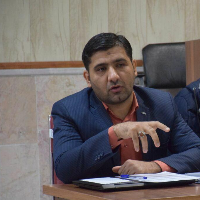Islamic work ethics and organizational commitment among employees of Isfahan University of Medical Sciences
Author(s):
Abstract:
The study of work ethics has gained great significance in recent years following the failures of major corporations and the West’s crisis. The main objective of this study is to examine the relationship between Islamic work ethics (IWE) and organizational commitment and its three dimensions including affective، continuance and normative commitments. This is a descriptive study that has been conducted in 2010. One hundred and fifty nine employees participated in this study who selected from hygiene، nursing & midwifery، pharmacy & medicinal sciences، dentistry، rehabilitation sciences، and management & information faculties through stratified random sampling. Data were collected via the 17-item Islamic Work Ethics Questionnaire، constructed by Ali (2000)، and the 24-item Organizational Commitment and its dimensions questionnaire، constructed by Meyer & Allen (1991). The collected data were analyzed through correlation and regression using SPSS17. The result of factor analysis confirmed the multidimensional nature of organizational commitment. The result of correlation and regression analysis also showed that there is a positive and direct relationship between IWE and total organizational commitment and its three dimensions. The demographical variables did not impact on IWE and organizational commitment. According to the results، the employees of Isfahan University of Medical Sciences are committed to the organization either because of an emotional bond to the organization or in the absence of better job opportunities outside the organization. It may be beneficial to convey these results to managers in order to make them aware of the fact that the employees are not reluctant to leave the organization for a better job with better conditions. In view of the relationship between Islamic work ethics and organizational commitment، it is recommended that university directors and presidents attempt to increase organizational commitment by providing ethical codes and promoting Islamic work ethics principles.
Keywords:
Language:
Persian
Published:
Journal of Medical Ethics and History of Medicine, Volume:6 Issue: 2, 2013
Pages:
86 to 98
https://magiran.com/p1143627
سامانه نویسندگان
مقالات دیگری از این نویسنده (گان)
-
Identifying and Prioritizing Factors Behind Cyber loafing Use at Work Using Multi-Criteria Decision Making (MADM) Approach
Nahid Amrollahi Biuki *, Fataneh Imandar, Ali Azhdari, Mohammad Zarei Mahmoudabadi,
International Journal of Management, Accounting and Economics, Oct 2024 -
The Double-Edged Sword of Curiosity: Exploring the Consequences of Nosiness in Organization
Amirhossein Soleimani Naeini, Mehdi Golverdi *,
Organizational Behavior Studies Quarterly,


